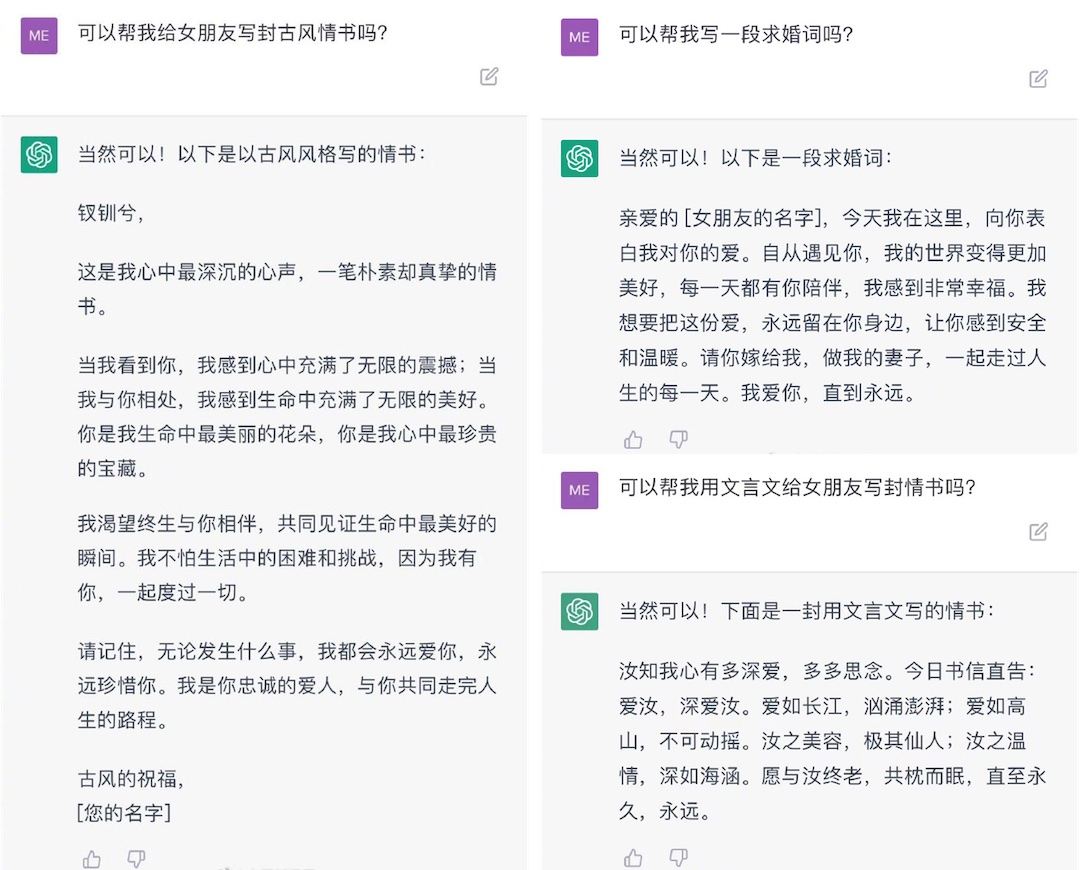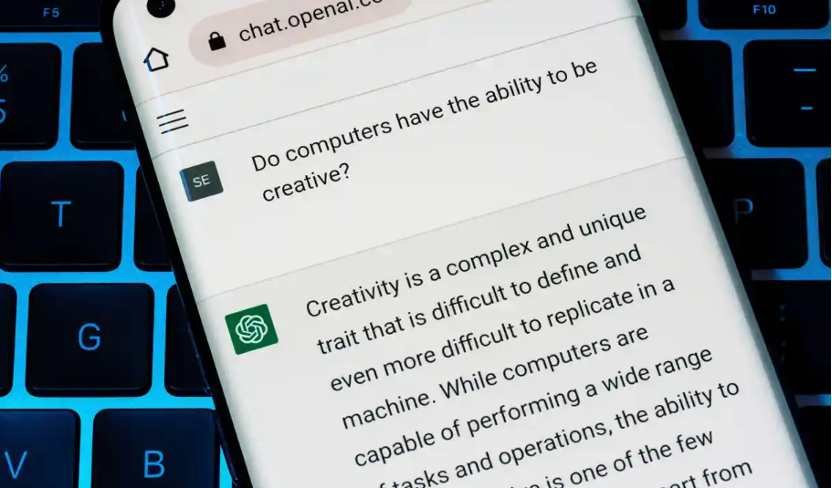How ChatGPT Could Shape The Future Of How Brands Do Business
by Davy Huang & Queenie Yao
First of all, this is not an AI-generated article. It's based on our observations and inspiration from the testing observed from the market. ChatGPT and AIGC have stormed the market, bringing an earthquake to the technology industry. They could also shape the future for international brands to market and develop a presence in China.
For instance, AIGC has demonstrated unparalleled efficiency in processing repetitive, entry-level, technical, and somewhat challenging tasks that could be a substitute for an intermediate human. In the Chinese sci-fi blockbuster The Wandering Earth II, quantum computing powered AI assistance MOSS (550W) helped humans build massive interstellar transportation systems and engineering projects, and manage every aspect of human society including, but not limited to, economics, education, commerce, politics, and even more. In the near future, how could AIGC changes how brands do business? Here's what we think.
Personalized search engine
• AIGC could further prompt consumer urges for authentic human interaction.
• ChatGPT has already demonstrated a strong capacity for researching, organizing, and concluding
• Consumers can use the AIGC engine for faster recommendations or inspiration. This means the top search results could matter less to customers.
• By understanding consumer basics, ChatGPT-like search engines can advise consumers on what's good for them, which can influence their decision to adopt or change services and products.
With such optimized advantages, brands can improve their customer experience and loyalty.
Let's take one of the applications of digital technology, intelligent customer service, as an example, which is the chatbot model.
For customer service, intelligent customer service applied to common business practices is more about solving practical problems, such as stating the delivery time, standard product matrix recommendations, sharing product benefits, and how to apply the product. However, it cannot initiate emotional communication with customers. When customers raise questions that cannot match chatbots' preset database, the chatbot will direct them to a real person for customer service.
It's important to remember that consumers select a particular brand not only for practical purposes but because they are aware of the brand’s values and accompanying services, which are crucial factors in decision-making. And these latter qualities have a stronger influence among premium brands.
In the future, intelligent customer service may not only answer customers' basic questions about product quality, logistics, and after-sales service. It may also give them a humanized experience as "my little friend" to meet users' needs in an all-around way, which brands pursue to enhance customer loyalty.
Enhanced productivity
• AIGC can help increase productivity for the brand, which seeks to provide better services, more competitive products, and unique inspiration to consumers.
• AIGC can be an arm for your marketing, logistics, supply chain, purchasing, and innovation departments. It can solve problems, enhance productivity, and even advise on the strategic level.
• We are already seeing AIGC's capability in creating massive content in a matter of seconds.
• Question: Can we trust anything we see from social media anymore?
Tailored marketing strategies
The brand can infer the AI-driven consumer decision algorithm model based on the historical user label, purchase, behavior, and other data. It can also analyze and summarize what type of consumers are more likely to buy products in the future and have greater purchase value.
Based on these insights, the brand can classify users and adopt different marketing promotion strategies according to demographics to accelerate user decision-making.
The true automation of the future will be driven by data and artificial intelligence. That is, user data must be applied correctly, and legally, then the ability of tools to integrate data models in appropriate scenarios can be harnessed to accelerate user decision-making and enable growth.
Let’s look at a timely example. Valentine’s Day is typically a crucial holiday for fashion and beauty brands in China. Positioned right after Chinese New Year, it is oftentimes the first major campaign of the year.
Imagine, if the brand is available to integrate ChatGPT technology into its Valentine’s marketing strategy, it can discover and tease out the most suitable platform, campaign formats, storytelling, specific time slot, and other key features to launch the campaign to target customers.

Basics are redefined
• The basic scope of work is replaced by ChatGPT like the AIGC engine.
• Brands need to step up further in content, design, and creativity to outperform their competitors.
• Anything taken for granted as the brand’s key success factors, such as brand awareness, endorsement, products, ingredients, and formulas, could be quickly replaced or imitated by competitors.
• Brands are expecting extremely resourceful customers that could challenge everything related to their business models, such as technology, ingredients, benefits, and even ethical decisions.
The AI represented by ChatGPT will not disrupt the industry but will be more like a "helper" to empower practitioners to generate better and faster results.
To be clear, creativity still matters, AIGC cannot fully replace human creativity. Although the ChatGPT technology is undoubtedly groundbreaking and unprecedented, it still requires human judgment and balances to be used effectively in digital marketing and daily life. Among Chinese social media platforms, some have experienced AIGC by ChatGPT claiming that the wording is like an accumulation of gorgeous rhetoric, but it is not vivid and engaging to the consumer. Notably, the English context is different from the Chinese one, and more training is needed if the brand uses the technology to translate copy for Chinese audiences.

Good is when ChatGPT thinks it's good
One of the concerns that we have is how ChatGPT and similar AIGC engines can affect consumer perception of a product, service, or even a brand. As AIGC becomes an accessible advisor for daily communication, it is undoubtedly going to change consumer behavior toward everything they perceive.
"Good is not good until it's approved by ChatGPT." Although ChatGPT had claimed that it is artificial intelligence, it does not possess consciousness; therefore it cannot replace human decision or preferences. But ChatGPT does bring average consumers more in-depth information about products and services, that people are using on daily basis. For years customers had relied on social media or their knowledge for decision-making. But they would be surprised when ChatGPT offers something entirely different.
The future is not equal
AI can increase the efficiency of marketing and communication, but it cannot replace the act alone. So far, people see ChatGPT as an "assistant" in practice, while creative teams use ChatGPT to get inspiration and support when their ideas are blocked.
Seeing the potential benefits, powerful and resourceful companies with better computing resources realize they can now do more with AI.
Chinese luxury platform Secoo announced the company plans to double down on AICG technology, and combine ChatGPT with its luxury business in the future. Once this announcement was released, Secoo stock rose by triple digits on February 6. The move comes just months after the online luxury retailer declared bankruptcy twice in 2022, freezing 153 million shares in the company.
Earlier, when BuzzFeed announced plans to use ChatGPT developer OpenAI's services to help create content, its stock price more than tripled in two trading days (Jan. 26 and 27). It was the biggest jump in the company's share price since it went public via SPAC in December 2021.
It may be better for brands to take a longer-term view and use this period as a marketing opportunity to sharpen the brand efficiency.